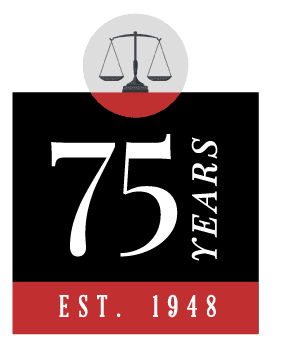Travis Wiebold, our newest criminal lawyer, won his first big case today. He litigated a motion to suppress evidence on a drug case in which his client was facing 25 years to life in prison. The judge granted the motion because of an illegal police search, which means the case was dismissed! Congratulations to Travis!
The client was the subject of an ongoing Lubbock Police Department investigation. An LPD Officer spotted his vehicle at a motel, saw that the registration had expired, waited for someone to take off in the vehicle and immediately stopped the vehicle. The defendant was arrested for driving while license invalid with a previous conviction. After his arrest, a police officer performed an inventory of the vehicle and found 12.2 grams of methamphetamine between the driver’s seat and center seat cushion. The officer did not follow the proper LPD protocol for inventory searches.
The Inventory Search Exception
Is a limited exception for the sole purposes of
o Protecting the vehicle owner’s property while in custody
o Protecting police against claims or disputes over lost or stolen property
o And to protect the police from potential danger.
o Colorado v. Bertine, 479 U.S. 367, 372, 107 S.Ct. 738, 93 L.Ed.2d 739 (1987); South Dakota v. Opperman, 428 U.S. 364, 369–70, 96 S.Ct. 3092, 49 L.Ed.2d 1000 (1976).
To be legal
o The inventory search must be conducted in good faith AND
o Pursuant to reasonable, standardized police procedure. – Moskey v. State Tex.App.-Houston 1st district.
o CCA Held in Moberg v. State in 1978 – to be constitutional an inventory search must not deviate from police department policy and that the State may satisfy its burden by showing:
– The impounding agency had an inventory policy AND
– That policy was followed.
– Moberg v. State, 810 S.W.2d 190, 195 (Tex.Crim.App.1991)
In Gauldin v State the CCA held that, “In the absence of testimony regarding actual adherence to standard police inventory procedure, the State has not sustained its burden of proof.”
LPD MANUAL
o 5.08.002 POLICY. Officers will thoroughly inventory all vehicles legally impounded or subject to Special Operations seizures under this Chapter. They will not use inventories instead of probable cause to search for evidence.
o 5.08.004 AFTER CUSTODIAL ARREST. Officers should inventory vehicles impounded after arrests at the scene and in the arrestee’s presence when feasible.
o 5.08.005 VALUABLES/EVIDENCE. Officers will remove valuables, firearms, evidence and contraband, and they will submit such items to the Property Room in accordance with this chapter.
o 5.08.006 RECORDING. Officers will list the items found during impounded vehicle inventories in Crime Reports and on impound cards. They will list the items found during Special Operations seizures in Supplement Reports only. Officers will describe the items in detail and will note where they found them along with who conducted the inventory.
Judge McClendon really focused on the fact that the items found were not listed in detail, nor where they were found in the vehicle.
o 5.08.004 AFTER CUSTODIAL ARREST. Officers should inventory vehicles impounded after arrests at the scene and in the arrestee’s presence when feasible.
o 5.08.005 VALUABLES/EVIDENCE. Officers will remove valuables, firearms, evidence and contraband, and they will submit such items to the Property Room in accordance with this chapter.
o 5.08.006 RECORDING. Officers will list the items found during impounded vehicle inventories in Crime Reports and on impound cards. They will list the items found during Special Operations seizures in Supplement Reports only. Officers will describe the items in detail and will note where they found them along with who conducted the inventory.




